
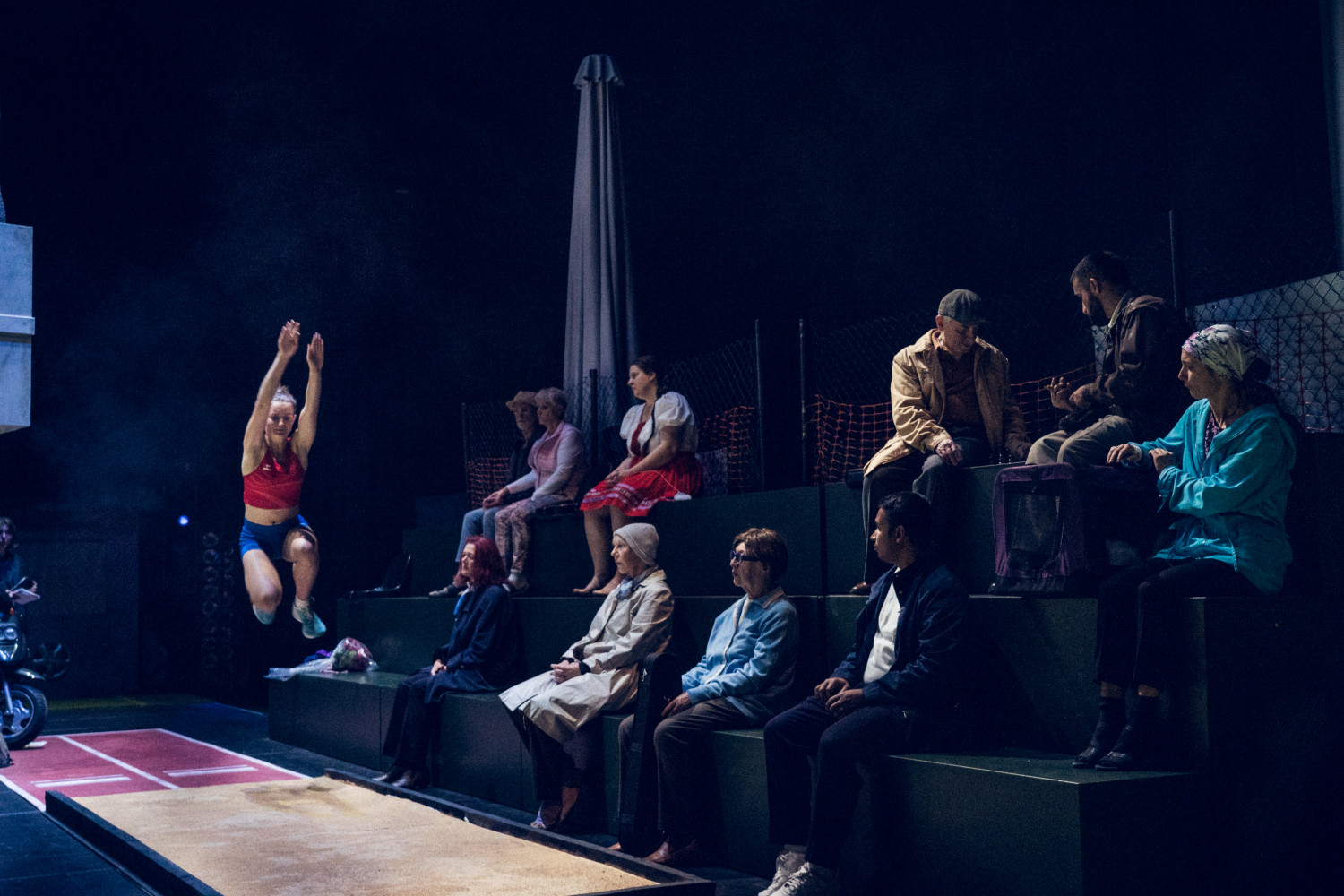
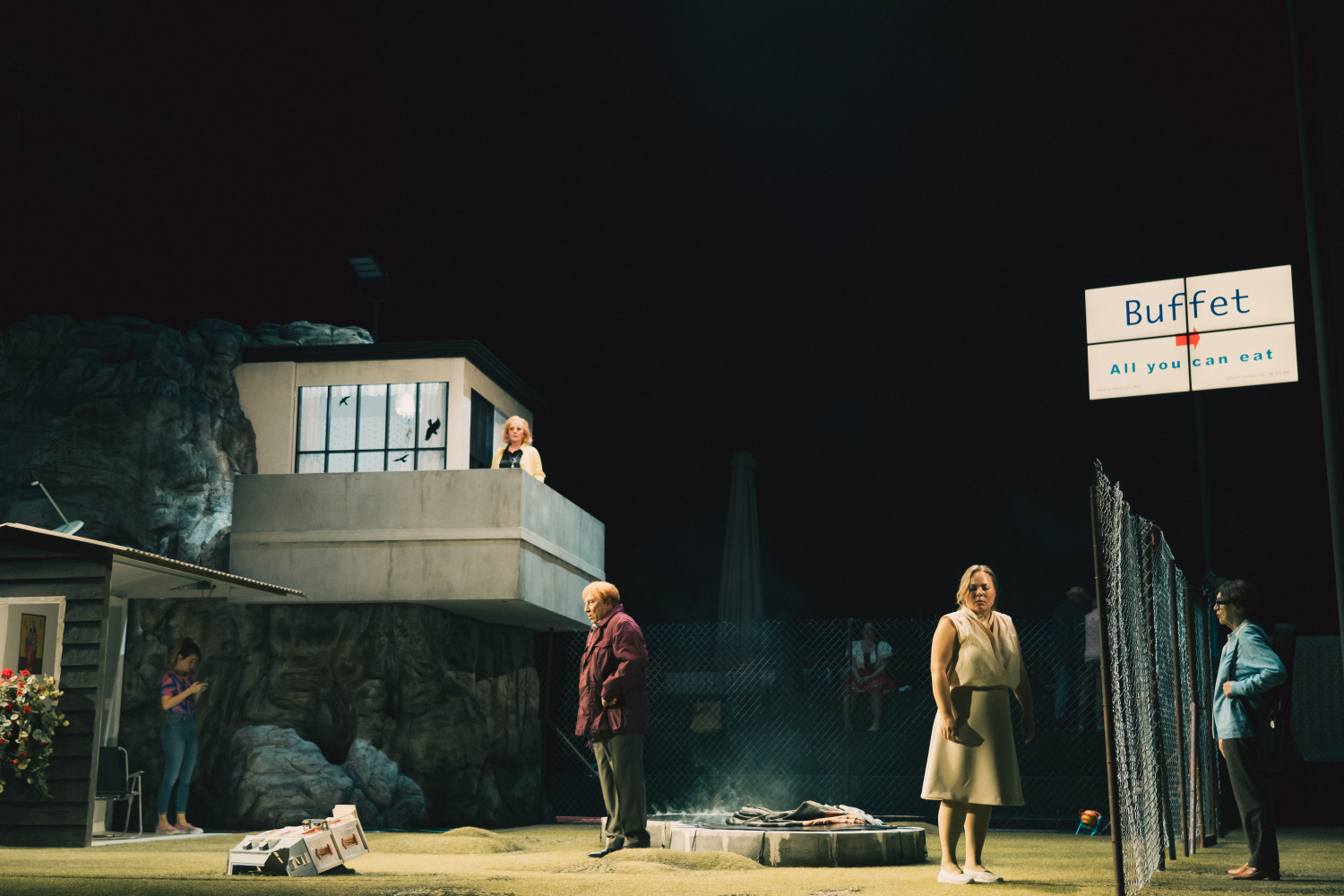

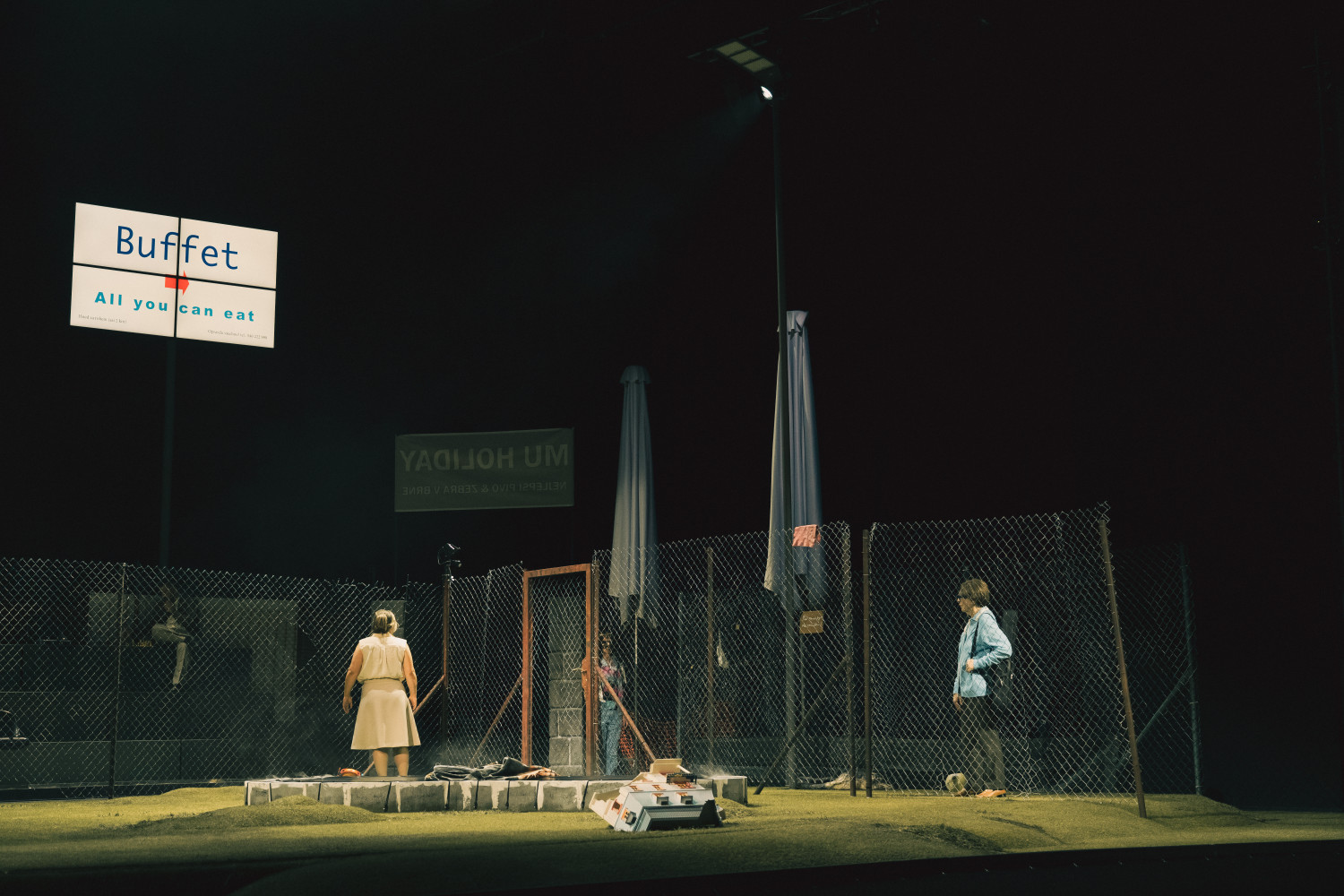
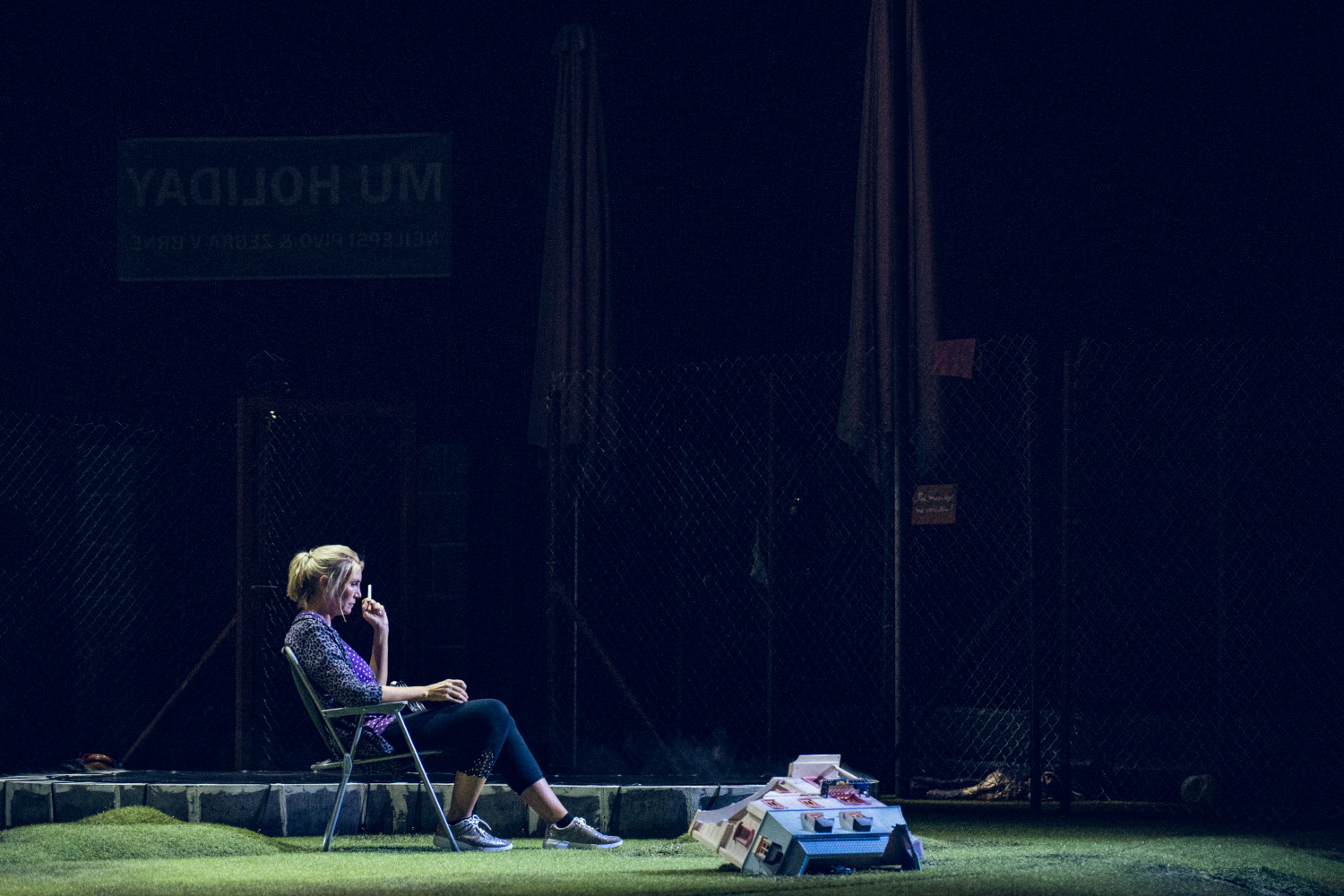
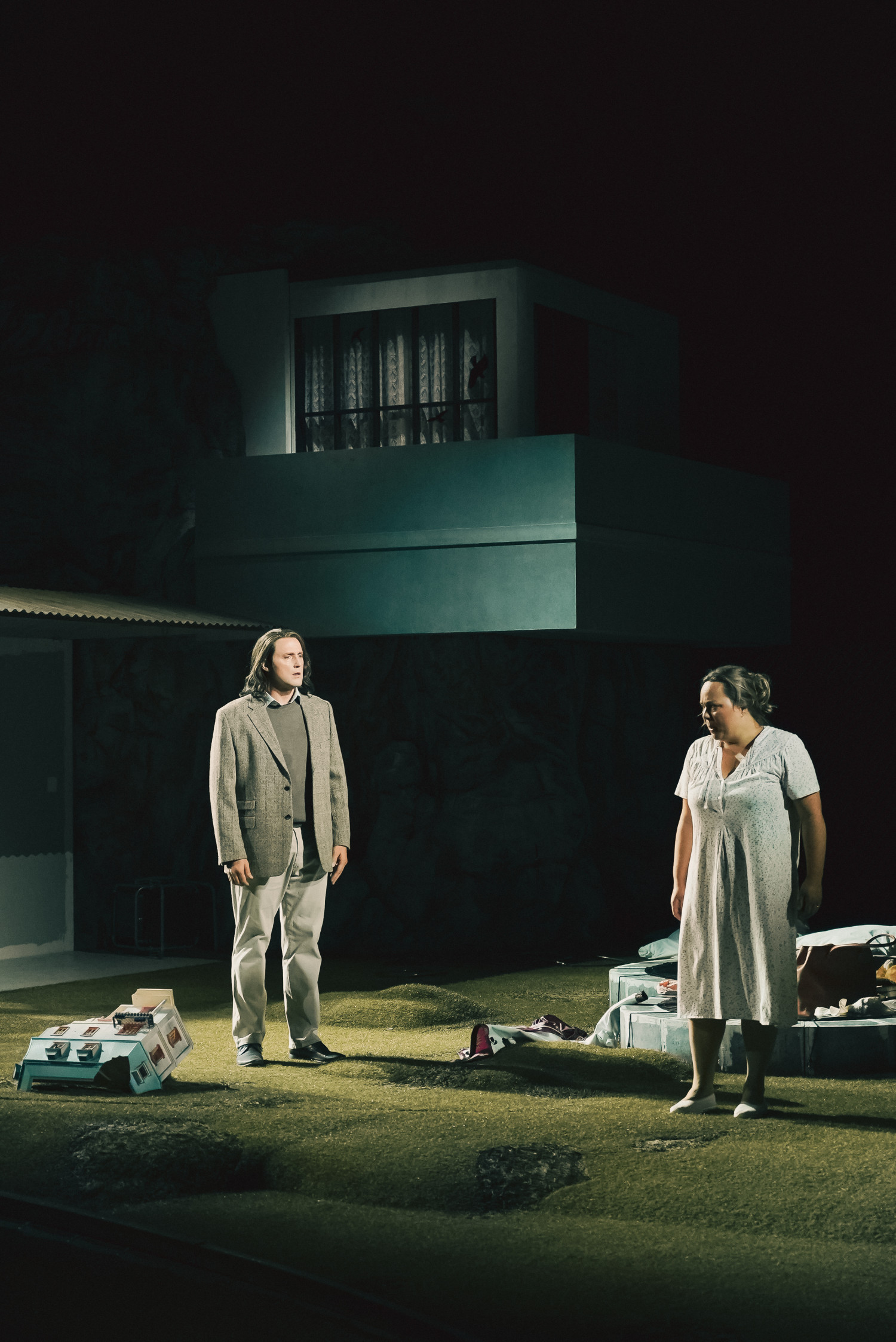
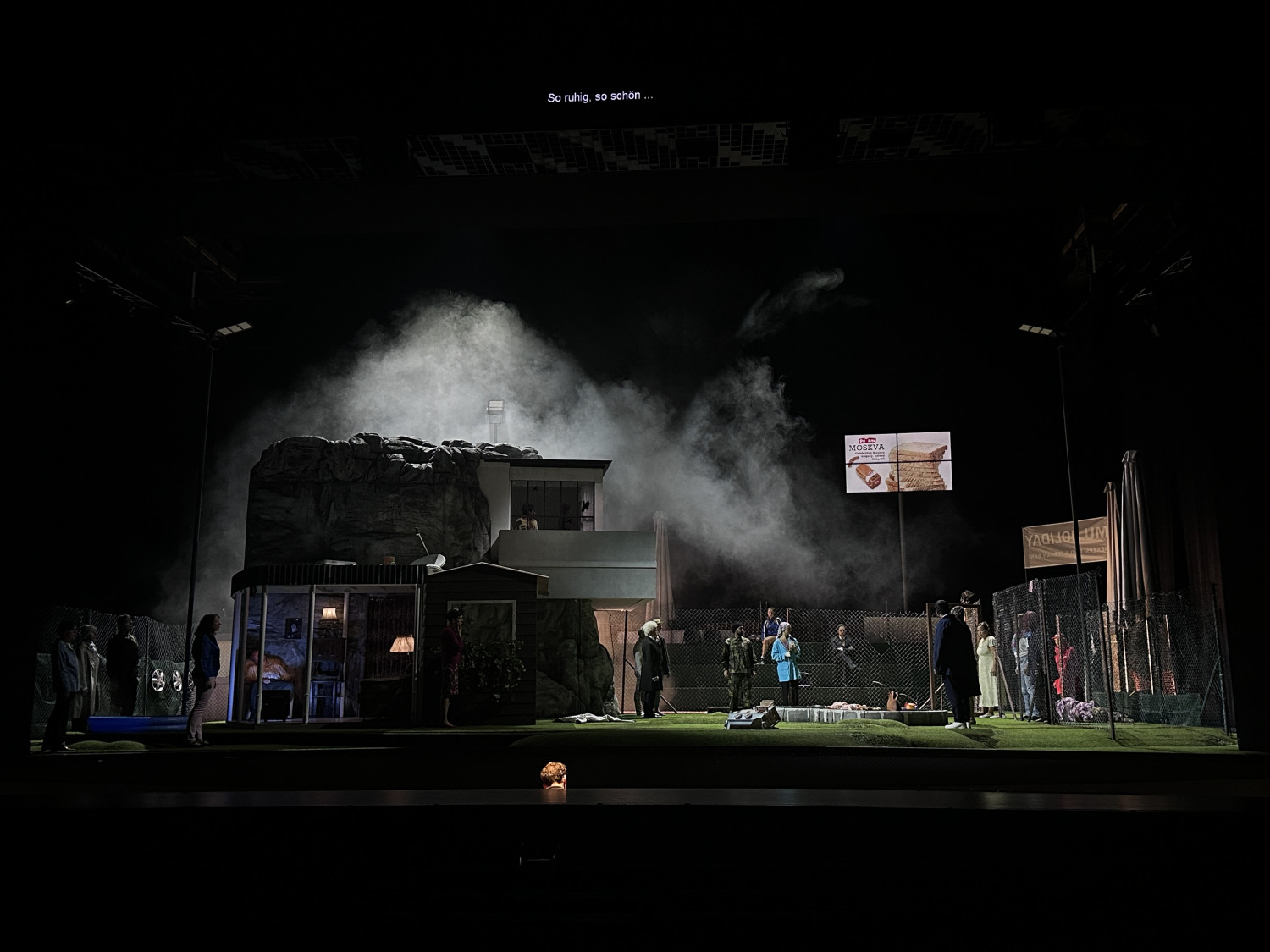








Janáček's opera Katja Kabanova, featuring the eponymous heroine, tells of claustrophobic confinement and attempted emancipation from strict moral laws. A small town on the Volga, a garden door that is always locked and secret night-time meetings - the supposed idyll soon turns out to be an environment in which the freedom-loving Katya becomes incapable of living. Katya, who is trapped in an unhappy marriage and the morals of the late 19th century, lives under one roof with her weak-willed husband Tichon and her despotic mother-in-law Kabanicha. When Tichon is sent travelling by Kabanicha, Katja finds herself alone.
She only confides her desire for freedom and her secret infatuation with the merchant's son Boris to her foster daughter Varvara. In the face of her traditional socialisation, Katja is overwhelmed by feelings of guilt and thus stands as a timeless victim of the patriarchal corset for all those women who come up against rigid boundaries in their attempts at emancipation.
Janáček masterfully interprets this claustrophobic confinement musically until it finally erupts in a thunderstorm of sound as a mirror of Katja's state of mind. In this way, Janáček condenses Alexander Ostrowski's drama The Thunderstorm into a highly tragic, oppressive portrait of a young woman whose attempted escape from convention leads to suicide in the waters of the Volga.